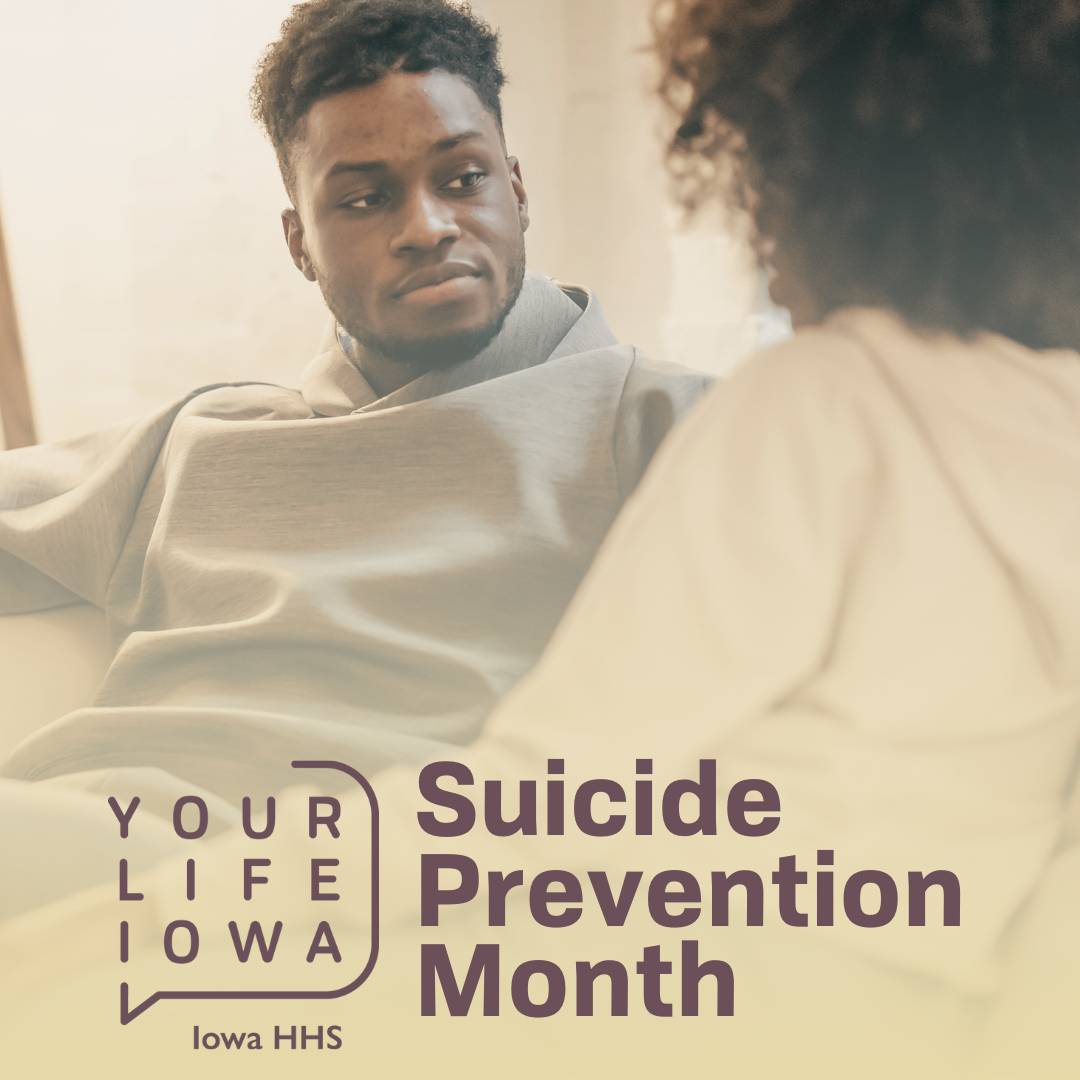 Published Sept. 10, 2024
Published Sept. 10, 2024
Thoughts of suicide, suicide attempts or death by suicide impact many Iowans. Suicide does not discriminate and can affect anyone.
Thoughts of suicide, suicide attempts or death by suicide impact many Iowans. Suicide does not discriminate and can affect anyone. It can be upsetting to hear someone say they are considering suicide. You may not know how to help. Should you take it seriously? What if you make it worse?
Your Life Iowa is here to support you and your loved ones when you have questions or concerns about thoughts of suicide. Counselors are available 24/7 by phone, text and chat.
See more resources about suicide prevention
Warning signs
Below are warning signs that may help determine if you or a loved one is at risk for suicide. Sometimes the behavior is new or increasing. Sometimes it seems related to a painful event a loss or a change in life circumstances. If any of this sound familiar, reach out to Your Life Iowa for help now.
- Talking about wanting to die or to kill themselves.
- Looking for a way to kill themselves. This includes online searches for suicide-related topics or buying a firearm.
- Talking about feeling hopeless or having no reason to live.
- Talking about feeling trapped or in unbearable pain.
- Talking about being a burden to others.
- Increasing the use of alcohol or drugs.
- Acting anxious or agitated, reckless behavior.
- Sleeping too little or too much.
- Withdrawing or isolating themselves.
- Showing rage or talking about seeking revenge.
- Extreme mood swings.
Risk factors
A combination factors may contribute to suicide risk. They may include, but are not limited to:
- Alcohol/substance use and gambling disorder.
- Access to care.
- Cultural and religious beliefs.
- Easy access to lethal means.
- Exposure to others who have died by suicide.
- Family history of suicide.
- Family history of child abuse.
- Feelings of hopelessness.
- History of trauma or abuse.
- Isolation, a feeling cut off from other people.
- Lack of support.
- Recent deaths by suicide in the local community.
- Loss (relationships, social, work or financial)
- Being impulsive or aggressive.
- Major physical illness.
- Mental disorders.
- Previous suicide attempt.
- Stigma associated with asking for help.
Start the conversation
Asking someone about suicide can often be an opportunity to open up about their feelings. Asking about suicide won't insult them or make them have thoughts of suicide. Asking about suicide lets people know that you care. We can help you know how to start that conversation or visit NAMI Iowa to learn more.
Stigma around suicide can include negative beliefs or stereotypes. People may fear what other's think them as "weak" or a "failure" if they talk about having suicidal thoughts. Those who have lost a loved one to suicide may be hesitant to reach out for help because they are afraid of judgement. Listening and having open, honest conversations with them is a good place to start. It can encourage our loved ones to know we care and help them seek help.
Support is available
September is Suicide Prevention Month. Your Life Iowa is here every day, 24/7. Thoughts of suicide affect thousands of Iowans each year. Your Life Iowa can help you find support if you're having thoughts of suicide. We can also support you in helping someone you're concerned about. Reach out today.
